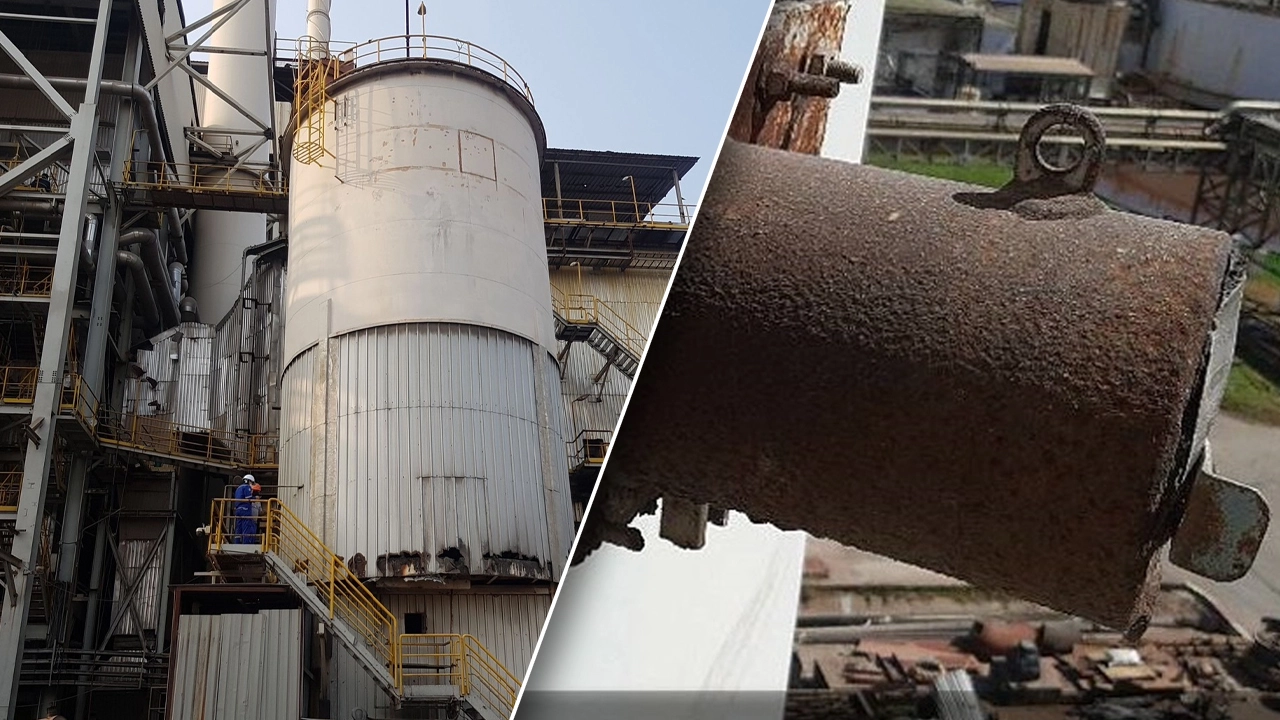Power plant in Thailand ups reward for missing radioactive cylinder to 100,000 baht

UPDATE
A power plant in Prachin Buri province in central Thailand has upped the reward for information on the whereabouts of a missing radioactive cylinder containing Caesium-137 from 50,000 to 100,000 baht.
The Office of Atoms for Peace have checked CCTV and scoured second-hand shops in the Si Maha Phot district to no avail.
The radioactive cylinder was noticed missing on Friday but is believed to have been taken from the plant on February 23.
Prachin Buri governor Ron Nakhonchinda said that all factories within a 2-kilometre radius of the plant have been searched but the Caesium-137 is still missing. The search is being expanded to other provinces, said Governor Ron.
Given the grave danger the radioactive substance presents to human and environmental health, more than 20 power plant officials have been interrogated about the missing cylinder at Si Mada Phot Police Station, but none of them has provided information so far.
If you see the cylinder – a steel tube around five inches in diameter, eight inches long and weighing 25 kilogrammes – don’t touch it.
Immediately call Khun Aree on 085-835-0190, Khun Phattana on 085-835-2735, or the Disaster Prevention and Mitigation hotline on 1784.
ORIGINAL STORY: Authorities scramble to find radioactive cylinder stolen from power plant in Thailand
Thai authorities are scrambling to find a steel tube containing the radioactive isotope Caesium-137 believed to have gone missing from a power plant at an industrial estate in Prachin Buri province in central Thailand on February 23.
Staff noticed the cylinder was missing on Friday and filed a record at Sri Maha Phot Police Station that day.
The company said that anyone with information on the Caesium-137’s whereabouts will be rewarded with 50,000 baht.
The substance is encased in a steel tube around five inches in diameter, eight inches long and weighs 25 kilogrammes.
Staff at the plant said the radioactive isotope will not cause damage to health or the environment unless the cylinder is dismantled.
Caesium-137 is invisible and has no odour. Any body part exposed to the substance will suffer from necrosis (body tissue decay) from beta and gamma radiation.
Permsuk Sutchapiwat, secretary of the Office of Atoms for Peace – Thailand’s agency responsible for nuclear research – warned…
“If someone breaks the cylinder, when you are directly exposed to it, you could be exposed to a high risk of cancer and serious illness, so please don’t break the cylinder.”
According to the CDC…
“External exposure to large amounts of Cs-137 can cause burns, acute radiation sickness, and even death. Exposure to Cs-137 can increase the risk of cancer because of exposure to high-energy gamma radiation.
“Internal exposure to Cs-137, through ingestion or inhalation, allows the radioactive material to be distributed in the soft tissues, especially muscle tissue, exposing these tissues to the beta particles and gamma radiation and increasing cancer risk.”
National Power Plant 5A Co., Ltd., and the Office of Atoms for Peace set up a team of 50 people to search for the missing radioactive isotope but couldn’t find it anywhere on the plant grounds. They believe it has been taken away.
The team searched 26 locations in the Si Maha Phot district including scrap metal yards, second-hand shops and antique shops to no avail.
The team are expanding their search for factories in Chachoengsao which buy steel from scrap metal yards/factories.
Current assessments detect no presence of the substance in the immediate area.
Latest Thailand News
Follow The Thaiger on Google News:


























